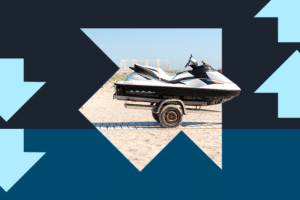Introduction
Tech conferences are a great way to learn and be inspired. The following describes a few tips to know beforehand.
Finding and Booking Conferences
First, identify what you are looking to get out of a conference, which languages or frameworks you’re interested in, if you want to travel or not, and date availability. Not sure where to find potential conferences? You have several options:
- lanyrd.com
- meetup.com
- Local tech meetups – often the same people attending or organizing meetups are the ones attending or organizing conferences
Second, consider your professional training budget – will your employer pay for it? If so, understand what will be required of you in terms of accommodations, budget, and receipts. Here at uShip, developers are encouraged to attend conferences, with a generous budget provided by management. Stipulations include booking travel and accommodations through a specific site, and digitizing receipts afterwards, but it’s well worth it.
Finally, act quickly when you decide you want to go! Good conferences are just like good concerts or music festivals – if you wait until the last minute to buy tickets to Austin City Limits you’re going to miss out. I’ve made the mistake of waiting to buy a ticket for CSS Conf in New Orleans, and it sold out the next day when I attempted to finally buy a ticket.
Pre-Conference Planning/Checklist
Laptop – sounds obvious, but at the same time, I’d suggest only using your laptop in between talks or during lunch; more on that later. A backpack comes in handy here, especially for any swag.
Bring a paper notebook – there have been [studies] about better retention when writing something compared to typing or nothing at all.
A convenient tech conference virtual machine based on Ubuntu is Juicebox, which comes preloaded with commonly-used and talked about technologies like git, Python, Node, Ruby, and more.
Often times the schedule is not available at time of ticket purchase, but once the schedule is released, you should start thinking about which talks you’d like to attend. Some conferences do not offer a choice, which makes planning easier. Typically in your welcome packet you’ll receive a paper schedule or the schedule on the website will be accessible from your phone. Another parallel to music festivals here – you might have to make some tough scheduling decisions!
During the Conference
Be wary of falling into the boring classroom lecture trap – these aren’t required English composition college classes, so make an effort to get your time and money’s worth by paying attention*. I find my laptop, phone, and smartwatch to be distractions during talks – try to keep them put away during presentation. You hated the guy in class who was constantly asking questions, but again, try and make each talk as worthwhile to you as possible – and that means asking questions when you don’t understand or if you’re interested in learning more about a particular concept. Typically questions are welcomed at the end, time permitting, but is not always guaranteed unfortunately. Worst case, if you’d like more questions answered try to get the speaker’s contact information.
If during a talk you hear or see something really interesting, post about it on Twitter! Make sure to tag it with the conference name and/or relevant technologies (ex. #txjs #reactjs). You’ll help your personal brand in the tech world, and it’s another way to connect with other conference goers. The note will also be there for future reference if needed (your tweet might be a potential blog post).
* Some special tech conferences have a format that directly contradicts this, where they actively encourage attendees to leave talks as soon as they realize it’s not something they’re interested in. Check out what OpenSpace Conferences calls the ‘Law of Two Feet’.
Post-Conference
Just because the conference is officially over doesn’t mean you have to immediately forget everything. Type up any notes you have and publish them to your team. Even better, write a blog post to share with the world. Right after the conference is over is also a good time to checkout any new technologies or frameworks you were exposed to. If the conference organizer solicits feedback via survey, fill it out to help make that conference even better next year!
My Experiences
I’ve been to two tech conferences, and they differed quite a bit. Key points:
Nodevember
- Venue: Nashville School of Law, Nashville, TN
- Format:
- Saturday and Sunday – didn’t have to miss any work (besides travel time)
- Opening and closing keynotes (lasted over an hour!) – Quite inspiring, though did feel long at times.
- Choice of 3 different talks in every timeslot (45 minutes) – Nice to have options and personalize your schedule.
- Pros:
- Catered lunch – Nothing mind blowing, but convenient.
- Lots of swag – shirt, stickers, notebook, authored book
- Choice of talks
- Cons:
- Several inexperienced speakers
TXJS
- Venue: Paramount Theater, Austin, TX
- Format:
- One day only
- No keynotes
- No choice of talks, topics grouped by general theme (25 minutes) – I thought this would feel restrictive, but due to the overall high quality of the presentations, it didn’t actually matter.
- Pros:
- High quality presenters
- Great venue – This made a big difference to the overall feel, especially compared to the literal classrooms of Nodevember.
- Cons:
- Expensive – $200 for 1 day (no t-shirt, no lunch). This is where employer subsidizing is a huge benefit!
They were both fantastic experiences, but all things considered, I preferred TXJS. The venue was awesome, and the presenters were top notch, which in the end matters most.
Example Talks
This is a collection of some of my favorite conference talks:
Browsers vs. Native Apps (Andrew Dunkman)
Highlighted futuristic new browser features like ambient light sensing, webworkers, notifications, and geolocation.
Inline Styles (Jed Schmidt)
“There’s two things I don’t like about CSS – the cascading and the stylesheets.” Presented an entertaining, unique, contrarian viewpoint on the often-condemned practice of adding inline styles.
Progressive Enhancement (Jake Archibald)
Hilarious presenter, coined the term “lie-fi” to describe misleading Wifi signal on a phone, and showed the potential for much better offline experiences for websites and web apps.
Happy conferencing!
Originally posted on my personal blog.


